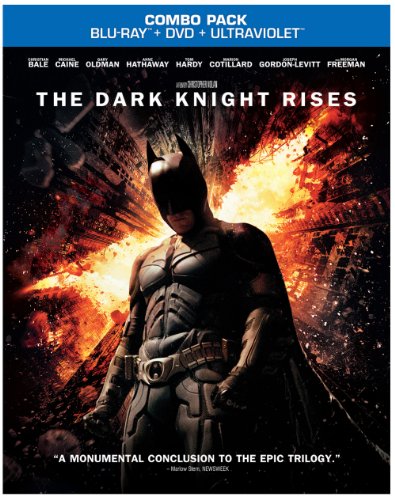
This has been a big summer for buzz-worthy blockbusters—starting with Joss Whedon’s ensemble adventure, .nightsandweekends.com/articles/12/NW1200154.php>The Avengers, followed by Ridley Scott’s Prometheus and the return of The Amazing Spider-Man. And now, as if movie lovers didn’t already have more than enough reasons to shell out their hard-earned dough at the box office, along comes Christopher Nolan with The Dark Knight Rises, the dark and timely but exceedingly complex conclusion to his breathtaking Batman trilogy.
The Dark Knight Rises picks up the Batman’s story eight years after he took the fall for Harvey Dent’s death and went into hiding. Now, billionaire playboy Bruce Wayne (Christian Bale) is just a shadow of his former self—a heartbroken recluse with a dwindling fortune.
For the past eight years, Gotham City has been relatively crime-free—but now a new menace is rearing his masked head. And with muscle-bound terrorist Bane (Tom Hardy) threatening to bring chaos and anarchy to the once peaceful city, Batman’s most devoted supporters believe that it’s time for the Caped Crusader’s return.
Like Nolan’s earlier Batman films, The Dark Knight Rises isn’t the same old superhero movie. It isn’t flashy or blatantly over-the-top, with a script that’s loaded with cheesy one-liners. Instead, it’s dark and bold and gritty, with a massive, menacing villain who’s sure to haunt your dreams—and a brooding hero who might just do the same. Still, 2008’s The Dark Knight was a pretty tough act to follow—and, after four years of speculation and anticipation, The Dark Knight Rises doesn’t quite live up to the hype.
The film’s greatest flaw is its complex story about hope and despair. Nolan is known for his thoughtful, intricate plots, and, this time, he plays with all kinds of timely topics—particularly the Power to the People mentality inspired by the current recession (and movements like Occupy Wall Street). Bane, after all, is determined to put the people of Gotham in control of their city (with disastrous results, of course)—and Anne Hathaway’s Catwoman is like a modern-day Robin Hood in a skin-tight suit and a flimsy black mask, robbing only from those who can afford to be robbed. While the film’s various storylines are definitely relevant, though, they’re often extremely difficult to follow—and you’ll most likely find yourself lost in a tangled web of storylines about abandoned experiments and diminishing fortunes and stock market shenanigans.
Meanwhile, some of the trilogy’s most beloved characters find themselves relegated to minor roles—especially Michael Caine’s Alfred, who leaves Wayne Manor after Bruce decides to return to his crime-fighting ways and is absent for much of the movie. Fortunately, there are plenty of noteworthy performances to compensate for the loss. Bale, for instance, is at his series best as the moody hero—despite spending surprisingly little time as the Caped Crusader—and Joseph Gordon-Levitt makes a solid contribution as squeaky-clean young cop John Blake. Hardy, meanwhile, is definitely a force to be reckoned with as Bane, but his oddly altered voice often makes him sound like a crazy old man—and many of his lines are almost entirely unintelligible. Really, though, the only cast member who completely misses the mark is Hathaway, who doesn’t seem to know whether she’s supposed to be sassy and seductive or tough and defiant as the strangely superfluous Catwoman.
Of course, even with its share of flaws, The Dark Knight Rises is still a sight to behold, thanks to Nolan’s signature style. He’s truly an artist—one with an eye for detail and an undeniable gift for building breathtaking drama and suspense. And although the story may sometimes be tough to follow, you’ll have no problem getting caught up in the action and excitement and the sheer badassness of it all. So while the final film in Nolan’s Batman trilogy certainly isn’t his best, this unconventionally dark and dramatic superhero adventure is still well worth the price of admission.


